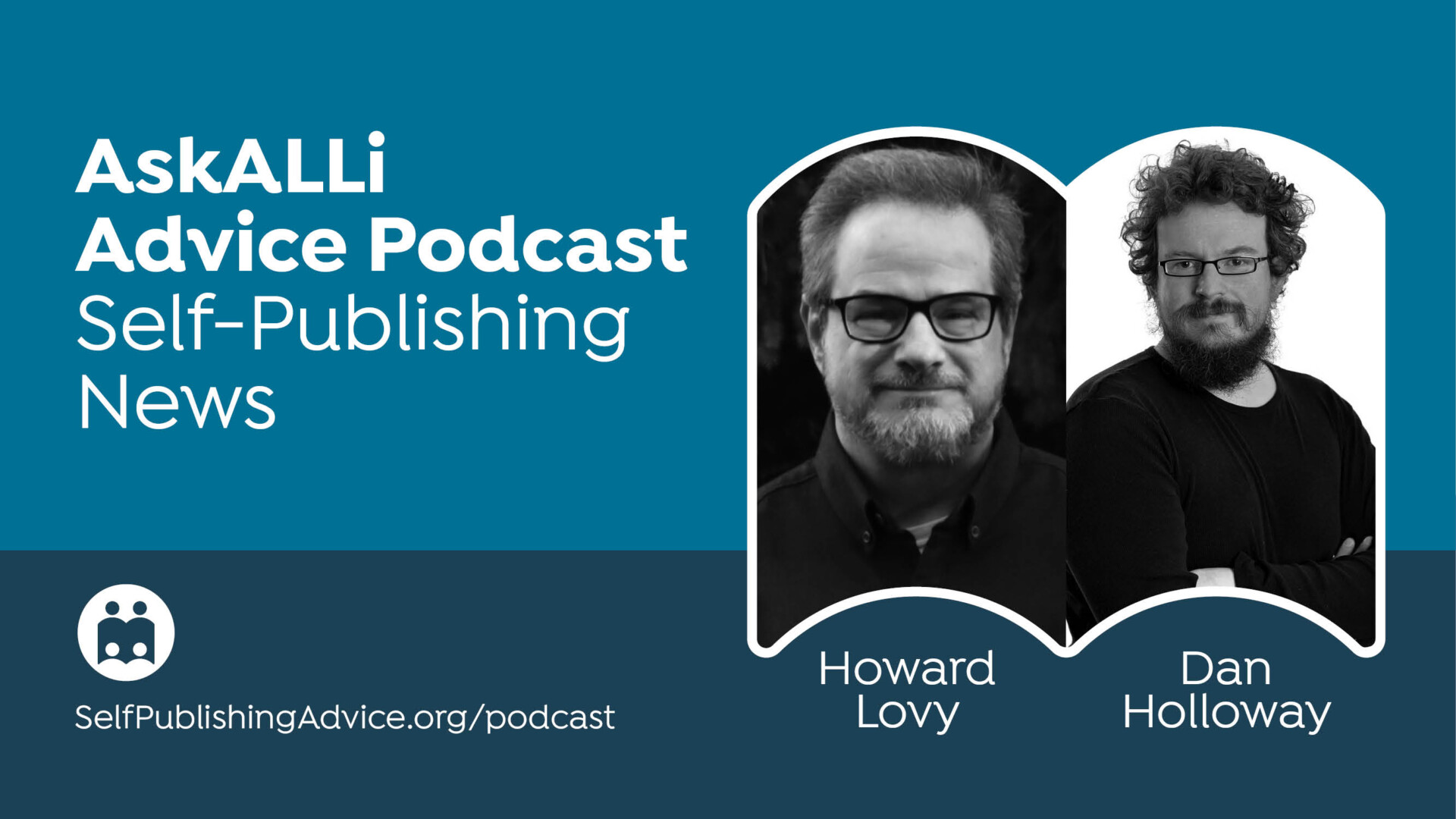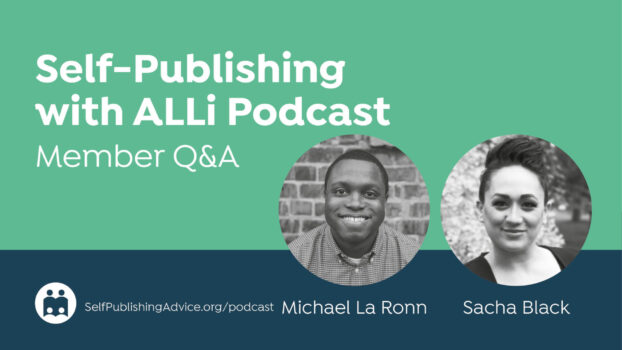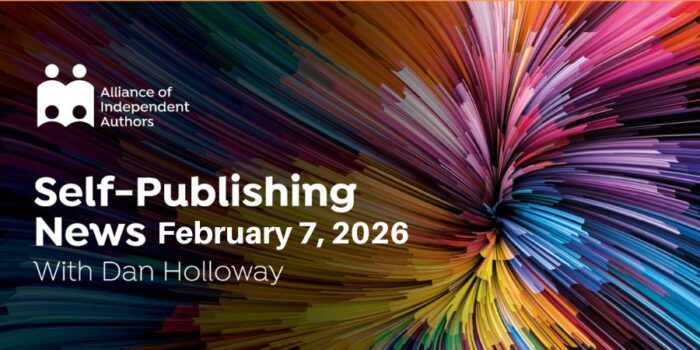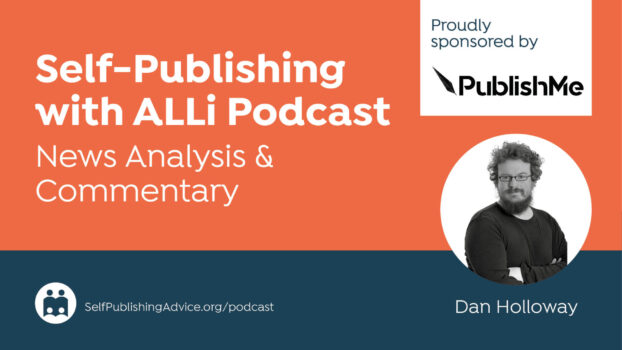Who makes money from subscription services? Also, Draft2Digital acquires Smashwords. These are among the topics discussed on Self-Publishing News with Alli News Editor Dan Holloway and News and Podcast Producer Howard Lovy. Together, they will bring you the latest in indie publishing news.
Find more author advice, tips and tools at our Self-publishing Author Advice Center, with a huge archive of nearly 2,000 blog posts, and a handy search box to find key info on the topic you need.
And, if you haven’t already, we invite you to join our organization and become a self-publishing ally. You can do that here.
Listen to Self-Publishing News: Subscriptions and Draft2Digital
Subscribe to our Ask ALLi podcast on iTunes, Stitcher, Player.FM, Overcast, Pocket Casts, or Spotify.
On the #AskALLi Self-Publishing News Podcast with @agnieszkasshoes and @howard_lovy: Who makes money off subscription services? Also, @Draft2Digital buys Smashwords. Share on XAbout the Hosts
Dan Holloway is a novelist, poet and spoken word artist. He is the MC of the performance arts show The New Libertines Earlier this year he competed at the National Poetry Slam final at the Royal Albert Hall. His latest collection, The Transparency of Sutures, is available on Kindle.
Howard Lovy has been a journalist for more than 30 years, and has spent the last eight years amplifying the voices of independent publishers and authors. He works with authors as a book editor to prepare their work to be published. Howard is also a freelance writer specializing in Jewish issues whose work appears regularly in Publishers Weekly, the Jewish Daily Forward, and Longreads. Find Howard at howardlovy.com, LinkedIn and Twitter.
Read the Transcripts: Subscriptions and Draft2Digital
Howard Lovy: Hello and welcome to the February 2022 edition of Self-Publishing News from the Alliance of Independent Authors. I'm Howard Lovy, in Traverse City, Michigan, and joining me from Oxford University is ALLi news editor, Dan Holloway. Hello, Dan. How are you?
Dan Holloway: Hi Howard. Yes, I guess just puddling along. How are you?
Howard Lovy: Yeah. Well, I'm trying not to let world events distract me from the world of my work.
So, as you know, ALLi is celebrating its 10th anniversary this April at the London Book Fair, and I'll be traveling to London for the celebrations and among other things, I'll produce a special edition of Self-Publishing News, and I'll talk to you and other indie authors and ALLi members about what this organization has meant to them. And I'm really looking forward to finally meeting you, and the whole ALLi team, in person.
Dan Holloway: Fabulous. Yeah, it'll be an interesting event. It's always good. I've done a couple of podcasts from that before, it has terrible acoustics, because it's a big hall with a massive high metal ceiling with pigeons flying around in it.
Howard Lovy: Well, I'll try to pull people aside into a clothes closet somewhere, well-masked, of course.
Dan Holloway: Or wait for the Amazon after party which is where I usually do most things.
Howard Lovy: Yes, you've talked about this Amazon after party now, ever since I've met you, so I'm expecting big things out of this party.
Dan Holloway: They have really nice small veggie burgers, that's the main thing.
Howard Lovy: Okay. So, let's move on to the news, and the biggest event in our world this past month has to be Draft2Digital buying Smashwords.
Dan Holloway: By ‘our' you mean the world of indie publishing?
Howard Lovy: The world of indie publishing, right. Maybe our world is a little bit bigger than that. So, Dan first tell us what these two companies do and what their merger means for indie authors.
Dan Holloway: They are both distribution platforms for digital books. Smashwords is probably the first platform that many of the very earliest indie authors used before Kindle. So, I was using it back in 2007, I think, which was considerably before Kindle. And as I often say to people, they have a fabulous cataloguing system where your book, in the olden days it was smashwords.com and literally forward slash whatever ordinal number your book was published in, and I had one that was a three-digit number. So, I was one of the first thousand titles to be published on Smashwords. I think it was 375 or something like that, back in the very, very old days when we were selling a copy a year, that was about it for digital books, but it was ground-breaking and Mark Coker who runs Smashwords has been a great champion of indie authors over the years.
Draft2Digital is a much more sort of slick operation, you can publish to all sorts of sites. I mean Smashwords in the olden days, you'd publish to Barnes and Noble, and Amazon, and a couple of other places, and that was about it, but I'm pretty sure it's moved on since then. But Draft2Digital publishes to leading bookstores all across the world. They have some very slick software, and it sort of makes sense for them to take over some something like Smashwords. And it's really good to see that Mark Coker will have a seat on their board, so he will keep that sort of pioneering indie spirit, which is it's good to know.
Howard Lovy: Right. So, does this create a situation though where there's less competition and is that bad or good for indie authors?
Dan Holloway: To be fair, I think Smashwords hasn't really been, it has a great infrastructure, and it has some great ideas, but it hasn't really been a big player for a long time. So, I'm not sure if it's that big of a move, and it's not going to get any anti-trust lawyers worked up, put it like that.
Howard Lovy: So, tell me, what do you expect from this new and improved a Draft2Digital?
Dan Holloway: They're going to use all the synergies involved to help them spend more on R&D. So, I'm guessing that will mean more marketing tools as that's sort of what they lack at the moment. So, something along the lines of what PublishDrive are doing, where they're using AI to help with marketing. So, slicker use of metadata, helping you to find your audience more easily, that kind of thing, I'm guessing. And who knows, maybe a subscription at some point.
Howard Lovy: Right, which I guess moves us over to the next topic, everything is all about subscriptions. I know it's a focus of yours in your column. You know, subscriptions are how I both make my money and spend my money. I subscribe to Audible for audiobooks and Netflix, and Amazon Prime, and Hulu, and Disney Plus, and HBO Max, not to mention my cable TV provider. So, somebody is making some money off of these subscription services, but is it the creators that are really making money? I guess that's the question.
Dan Holloway: The thing that's been in the news this month, which is really interesting, because it hasn't for a while, is how authors get paid. So, we've talked a lot about whether authors are going to get paid and whether we're going to start earning ever decreasing amounts for anything that readers consumed by subscription. But this month, we've seen three different models discussed.
First up there's what we call the creator pot model, which is where there is a fixed sum of money and every month that fixed sum of money, which comes from subscription cash, is sort of divided up amongst creators, and that will be familiar to most indie authors, because that's the model that Kindle Unlimited works on. So, on your KDP dashboard, you'll see your page reads, and every time you get a page read you get a fraction of a cent based on a fixed amount, which is in the pot, which at the moment is around $40 million a month. So, that's divided up, literally a very simple sum, that's divided up by the number of page reads there are, and the resultant fraction of a cent is how much you get per page read. So, it's a zero-sum game, and that's one of the worries that people have about these fixed pot amounts is that a zero-sum game, if the number of subscribers is going up or the number of things that each subscriber reads is going up, but pot isn't going up, then that can vary soon lead to diminished returns.
And it's been in the news this month because this is the model that TikTok have decided to go with for their creator pots, paying content creators for particularly successful, whatever it is they do on TikTok's.
Howard Lovy: You're not up there dancing, doing an interpretive dance to your books on TikTok?
Dan Holloway: I am not a TikTokker, no, but I know a lot of people in the book community are and that really swear by it as a way of selling books.
Howard Lovy: Yes, and I guess you don't have to always dance on TikTok, that's what I associate it with for some reason.
Dan Holloway: So, yes, TikTokkers have adopted this idea of a fixed pot of money, and creators each get an amount of this depending on how many people watch their videos.
The second model is the ad share model, which is what YouTube use, and we don't really use this in the indie writer world at the moment, but what differentiates it is that you've not got a limited amount of money. So, it's not a zero-sum game. So, if the amount of readers grow then the amount of money that you make can grow along with that. That sort of seems like a much better way of ensuring that creators always get a fair slice of the pie. It's not been hugely popular elsewhere, other than on YouTube.
But a really interesting thing that's coming this week, coming to the Self-Publishing News column this week, is a model that has been adopted by a company called Spotter, which is a YouTube related company. They've just had a $200 million investment, which shows how much money can be made in these things, and what they do is they license your backlist from you, and that's a really interesting idea. So, they will pay creators a sum of money upfront, sort of the equivalent of a publisher's cash advance, in return for the right to receive all the advertising revenue from the back list of that creator for the next five years.
So, it's a way of giving you money to develop your new product or your new content by making use of your back list, and that feels like a really interesting model for us.
Howard Lovy: I know there are a lot of the authors that have a pretty sizable backlist.
Dan Holloway: Yeah. So, it's a really interesting way of thinking about making money out of your backlist that isn't necessarily making money from it by selling reads.
Howard Lovy: Is this a new company that's been created for this?
Dan Holloway: It's not a new company, but this is a new investment round, sort of unicorn status, so that's why it's out there in the news. It makes them worth $1.7 billion, which is an equivalent amount to what Simon and Schuster was bought for.
Howard Lovy: That's good, it means that there is some value put on the actual creative process, the actual creators.
Dan Holloway: It feels like a really interesting move, and it means there are now, sort of, three different models of how you can end up getting paid.
Howard Lovy: Okay. Anything else new in the world of subscriptions or indie authors?
Dan Holloway: The only other thing, which I'll very briefly, for 30 seconds, which we touched on last time, is the fight between Amazon and Visa. Last time it had been put on hold, it has now been finally settled. So, Amazon has agreed to continue using Visa as a payment provider, on a global basis and not just in the UK. That means they won't be banning them in the UK, but it also means that the extra fees they charge people with Visa credit cards in Australia and Singapore, they're going to be dropping those. So, that's a significant development.
Howard Lovy: Right, and the wider issue here is just these payments providers, we're kind of at their mercy, a lot of times we're collateral damage in some of these wars.
Dan Holloway: Yeah, I'm sure indie authors out there who use payment providers are very aware of the level of fees that they are charging, it's around 3% per transaction.
Howard Lovy: Okay. Well, here we are still trying to balance making money and spending money, and then hopefully as creators we can continue to be on the right side of that balance.
Meanwhile, we'll keep reading your column in the next month for more news and everyone can find that on selfpublishingadvice.org.
And I will see you next month.
Dan Holloway: I'll see you next month, and then I will actually see you the following month.
Howard Lovy: Yes, and the following month I'll actually see you.
Dan Holloway: Excellent. Thank you.





